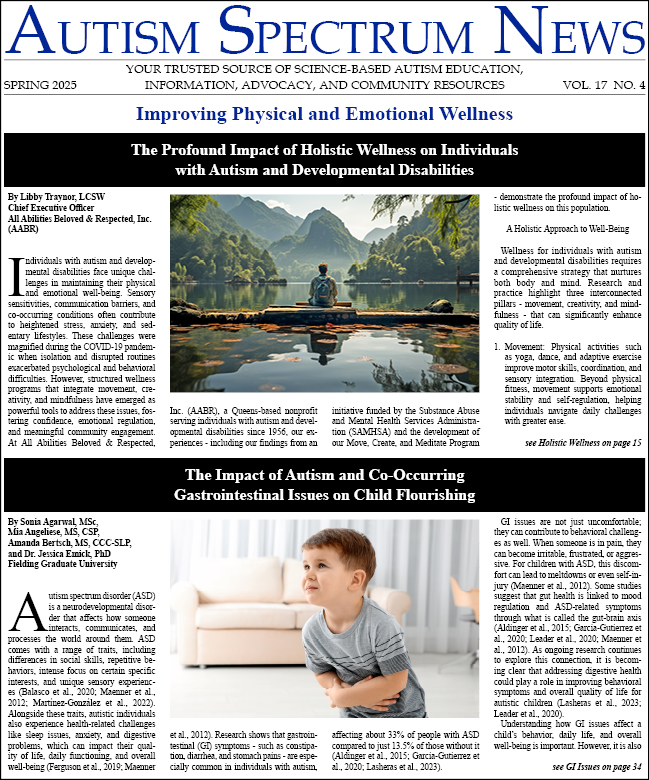As we prepare our students for transitions from school to work, we put much emphasis on academics and trade skills. However, more and more, the employers are putting an emphasis on hiring individuals with the right soft skill set. For our students to be successful, we need to assist them in making this shift. It will be important to our students’ learning of these skills to remember to showcase their individual strengths within the soft skills realm; looking at each independently. Some of the common soft skills that employers are searching for and some ways of addressing learning need to be taught similarly to how other tasks are taught to each individual student.

Vicki Ofmani, MEd, LDT-C
Let’s start with professionalism. Like it or not, others make judgment about us within the first few moments of meeting. This appears to be human nature. In the workplace, employers and fellow employees hear what you say and observe how you look. Teaching our students to look professional is paramount. Putting their “best face” out-there should be a mantra. As with other areas that we teach, there is a correct and incorrect way of presenting a professional demeanor. Skills to Pay the Bills distributed by the US Department of Labor and the Office of Disability Employment Policy is an excellent resource.
Then there’s a positive personality. Common sense tells us that the important skills are those that impact all aspects of our life. A favorite excerpt from the book, All I Really Need to Know I Learned in Kindergarten, hangs in my office. One line catches my eye daily: “…share…play fair. Put things back where you found them. Clean up your own mess….Live a balanced life – learn some and think some and draw and paint and sing and dance and play and work every day….” Soft skills aide in success in life no matter what one does. It is reasonable to believe that employers’ statements are true: hiring friendly, high-energy positive people is their choice. If one is timid, defined efforts should be made to teach steps towards reality-based confidence. The caring part of a job should shine through, and this typically comes with a “good fit.” A good match between the students’ strengths and the job itself must be the root and planted firmly into a plan of instruction. Confidence comes with continued practice and good work being recognized. The student will pump up and get positive feeling flowing with each new experience. Showing true passion for a career comes with the belief that it is a job well done.
These positive professional skills flow over into other aspects of an individuals’ life enhancing social life, post-secondary studies and allowing for more success in fulfilling and maintaining job choices. Hard skills may get a job, but the soft skills will keep it.
Preparation is something seldom considered as a standalone skill, yet if one is unprepared, it is assumed that one doesn’t care. This can be summed up as work ethic. Equipping our students with the right stuff is vital. It is a statement about who the individual is and the gift they have to share with the community. It is our duty to assist our students in finding that specific gift and preparing them to share it. We are equipping them for the future, just as much as reading for understanding, speaking so they can be understood, and listening actively. Our students can and must be instructed in ways that allow for responsible and thoughtful planning and decision making in the workplace. This doesn’t mean always knowing the answer to a question – it means always knowing where (or whom) to go to for that answer.
Proving lifelong skills like reading and math calculations have always been the educational plan. Now, for our students’ success we must lead them to be reflective and pliable. Job duties and requirements can change quickly; this is one of the most difficult of areas for our students to deal with. One may want to focus on one project, but circumstances may draw to another. Completion of one item at a time may not be an option. Employers want individuals who are able to accept change and adapt. Flexibility is necessary and knowing when to ask for assistance is just as essential.
Learning these skills is a process – across many environments. Observation of others is a beginning, so a model/imitation paradigm is encouraged. However, knowing that our students learn by doing, teachers and coaches should be instructing in a direct manner. Teach in black and white – no gray areas. For example, “When work begins at 9:00, one arrives at 8:50.” Rather than, “Be at work on time.”
We must also assist our students in building a clear vocabulary for the workplace. Included with this is the idea that we have different types of conversations (or exchanges) with friends, customers, and coworkers.
In our program, we have implemented a two-part introductory plan. Key is the exposure of our students to a Dog Therapy Program. We are using this, however in a very unconventional way. Our students are working 1:1 with therapy dog handlers who are training their animals for certification. The students are learning to be precise and defined in their actions and their speech (communication). The animals are loving and non-judgmental – such a brilliant combination! Our students are learning to use body language, keep someone’s attention, and reward positive behavior. It has been an excellent outcome. Anecdotally, we have observed our students becoming more aware of personal space, gesturing and eye contact.
Secondarily, but equally as fundamental, our students are open to programs within local hospitals and nursing facilities where they are volunteering and truly giving to others. I don’t believe this can be overstated. The experience of giving rather than receiving is remarkable. The realization of someone’s gratitude is expansive. Our students’ self-worth and self-advocacy is growing. Our community partners, who offer their places of business as sites for learning experiences for our students, report that our students are respectful and able to handle direction.
When building a successful program, it is vital to create a home/school alliance. Goals must be congruent. Philosophy must be harmonious. IEPs need to be adequately addressed pertaining to objectives and settings. Remember to gear schoolwork towards career-oriented assignments. Work experience during a student’s school years is crucial to getting and maintaining a position after leaving school. The elusive soft skills are hard to describe but easy to see. Partner with your young adults to prepare them, as we did to learn to sort colors from shapes. Allow them to be aware of their own strengths and build on them. Expand the classroom into the community and build professional, positive, prepared and pliable individuals with the confidence to move forward.
Vicki Ofmani, MEd, LDT-C, is Supervisor/SLE Coordinator at The Forum School, located in Waldwick, NJ. She is also a Member of the Board of Trustees for The Daniel Jordan Fiddle Foundation. For more information, please visit www.theforumschool.com or email vicki.ofmani@theforumschool.com.



